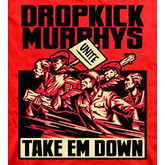We Won't Forget
Click image to contact Gov. Daniels. Indiana Gov. Mitch Daniels got his wish — the state Right to Work bill has been shelved, thanks in part to his unwillingness to stand on principle. Daniels, who called the bill divisive, worked…

Click image to contact Gov. Daniels. Indiana Gov. Mitch Daniels got his wish — the state Right to Work bill has been shelved, thanks in part to his unwillingness to stand on principle. Daniels, who called the bill divisive, worked…

Click image to contact Gov. Daniels. Indiana Gov. Mitch Daniels got his wish — the state Right to Work bill has been shelved, thanks in part to his unwillingness to stand on principle. Daniels, who called the bill divisive, worked…
Subscribe to The National Right to Work Committee® Posts by Email Why are Democrats in Wisconsin and Indiana fleeing the state rather than vote on reform measures? It's because Big Labor and the Democratic Party are completely codependent upon each other, the Investors Business Daily opines: The fleeing Democrats in Wisconsin and Indiana say they are protecting state workers, but they have plenty of self-interested reasons to hit the road. Their self-imposed exile and national Democrats' support show just how key Big Labor is to their fortunes. Unions have long been a backbone of support for the Democratic Party. They have become even more important in recent years as they ramped up campaign efforts. Without them, Democrats have no chance of reversing the GOP's 2010 gains. The American Federation of State County and Municipal Employees, the top public-sector union, spent a reported $87.5 million nationally in the 2010 election cycle — 99% for Democrats. The Chamber of Commerce, by contrast, spent $75 million. The National Education Association spent $40 million, and the Service Employees International Union spent $44 million. That doesn't count the unions' importance in get-out-the-vote efforts, in organizing rallies and in other election activities. There will be 91 electoral votes at stake in the seven upper Midwest states from Minnesota and Iowa to Pennsylvania (excluding President Obama's home state of Illinois). In 2008, Obama won all those states, including a narrow victory in Indiana. But in 2010, Republicans in the area had their best election in decades, picking up 16 House seats, two Senate seats, and five governorships. Only Minnesota's governorship flipped from Republican to Democrat.
Gary Beckner in the Washington Times makes the case that teacher’s in Wisconsin and elsewhere need Right to Work protection.
Gary Beckner in the Washington Times makes the case that teacher’s in Wisconsin and elsewhere need Right to Work protection.

The Service Employees International Union ( SEIU ) bosses are promoting a new song called “Take “Em Down” by the punk band Dropkick Murphys and like Rep. Michael Capuano the song advocates violence to those who oppose the monopoly…

The Service Employees International Union ( SEIU ) bosses are promoting a new song called “Take “Em Down” by the punk band Dropkick Murphys and like Rep. Michael Capuano the song advocates violence to those who oppose the monopoly…

Subscribe to The National Right to Work Committee® Posts by Email It was Right then. It is Right Now! Once upon time not too long ago, a Big Labor-controlled congress attempted to do away with state Right to…
It is almost surreal, but the union bosses of Wisconsin are preparing to call a general strike asking rank and file members to gamble their paychecks to protect the gravy train for government workers who make nearly $100,000 a year.